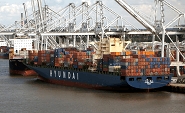Government/Policy

August 15, 2019
Commerce “Self-Initiates” Latest Anticircumvention Case on CORE Imports
Written by Tim Triplett
Noting that “strict enforcement of U.S. trade law is a primary focus of the Trump administration,” the Commerce Department announced its 21st anticircumvention inquiry Wednesday, notable as the first self-initiated by the government without a complaint from the domestic industry.
Commerce will be looking into possible circumvention involving exports of certain corrosion-resistant steel products (CORE) made with substrate from China completed in Costa Rica, Guatemala, South Africa and the United Arab Emirates (UAE), and CORE completed in Malaysia from Taiwanese substrate, and then exported to the United States. If the evidence suggests the steel undergoes a “minor alteration” in those countries, Commerce may determine that the exports are subject to the antidumping and/or countervailing duty orders on CORE from China and Taiwan. In 2017 and 2019, the department found that CORE completed in Vietnam from Chinese, Taiwanese and Korean substrate only had “minor alterations” by cold-rolling and coating the steel. Commerce had previously found that cold-rolling and coating flat steel met this test.
Under U.S. law, Commerce said, it may also conduct circumvention inquiries when evidence suggests that merchandise subject to an order is “completed or assembled” in the United States or third countries from parts and components imported from the country subject to the order.
Up to now, all anticircumvention inquiries have been initiated in response to allegations filed by the domestic industry. However, Commerce’s regulations provide that an anticircumvention inquiry may be self-initiated when the department determines from available information that an inquiry is warranted. This is the first time that Commerce has self-initiated anticircumvention inquiries based on its own monitoring of trade patterns, and the first self-initiation of multi-country anticircumvention inquiries.
If Commerce preliminarily determines that circumvention is occurring, the department will instruct U.S. Customs and Border Protection to begin collecting cash deposits on imports of CORE completed in Costa Rica, Guatemala, Malaysia, South Africa, and the UAE using Chinese-origin substrate, and CORE completed in Malaysia using Taiwanese-origin substrate. These duties will be imposed on future imports, and on any unliquidated entries since the date Commerce initiated these anticircumvention inquiries.
Shipments of CORE from Costa Rica, Guatemala, Malaysia, South Africa, and the UAE to the United States increased in value by 29,210 percent, 35,944 percent, 151,216 percent, 629 percent, and 5,571 percent, respectively, comparing import data from the 45-month period before and after the initiations of the original AD/CVD investigations on Chinese and Taiwanese CORE, Commerce said.
The latest inquiry mirrors earlier cases in which Commerce has pursued duties on CORE exports from Vietnam that were made from substrate first produced in China, South Korea and Taiwan. In those cases, it was determined that the Vietnamese corrosion-resistant products (galvanized or Galvalume) were using substrate from a country trying to evade U.S. trade laws and that the offending countries’ duties (mostly China) should be charged to the importer of record.







